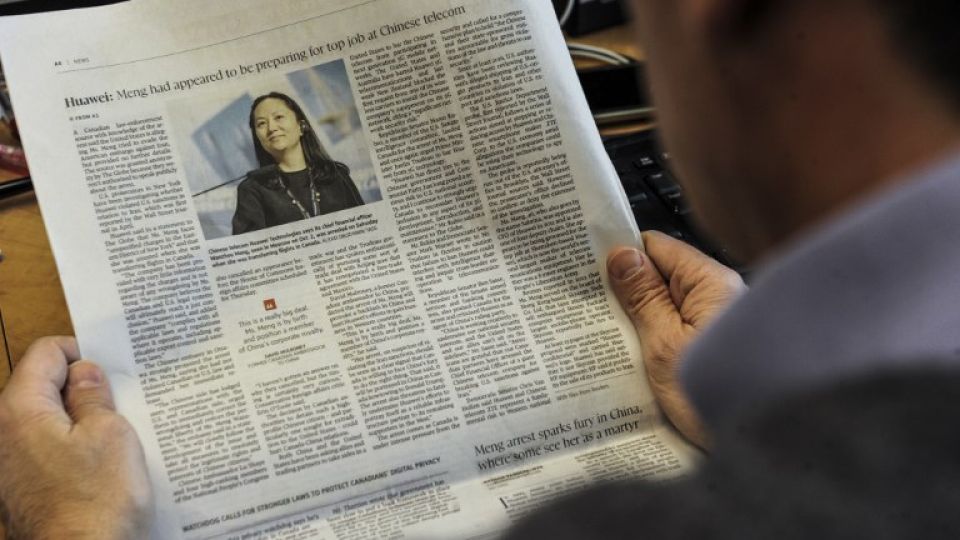December 10, 2018
China adds that it rejects US extradition claims.
Beijing on Sunday (Dec 9) summoned US Ambassador to China Terry Branstad and demanded that the United States withdraw the arrest warrant against a top Huawei executive detained in Canada.
Chinese Vice-Foreign Minister Le Yucheng made solemn representations and lodged strong protests with Mr Bransted for the “unreasonable” request that the US made to Canada to arrest Ms Meng Wanzhou while she was on transit in Vancouver.
“China will take further action based on US’ actions,” he said, according to a statement on the Chinese Foreign Ministry’s website released last night, noting the “very nasty nature” of the US action.
This comes after Mr Le made a similar protest to Canada’s ambassador in Beijing on Saturday.
Ms Meng, chief financial officer of Huawei and daughter of the company’s founder, was arrested on Dec 1. She has been accused of being personally involved in tricking banks into violating US sanctions on Iran.
Last Friday, her first bail hearing was held at the Supreme Court of British Columbia. The hearing will continue Monday.
The case has attracted widespread attention in China with state media slamming Canada for the arrest, calling it an act to humiliate China as well as a violation of human rights.
They warned that Canada risked facing severe consequences, including severe sanctions from China, if Ms Meng’s case is not handled properly and in a humane manner.
Reuters reported that US Senator Marco Rubio told CBS Face the Nation on Sunday he would “100 per cent absolutely” introduce something in the new Congress that would ban Chinese telecom firms from doing business in the United States.
“We have to understand Chinese companies are not like American companies. OK. We can’t even get Apple to crack an iPhone for us in a terrorist investigation,” he said.
“When the Chinese ask a telecom company, we want you to turn over all the data you’ve gathered in the country you’re operating in, they will do it. No court order. Nothing like that. They will just do it. They have to. We need to understand that.”
A commentary in the Chinese Communist Party’s (CCP) official People’s Daily said Canada will pay “a heavy price” if it does not “correct its mistake”.
While China would not “cause trouble”, it also did not fear trouble, said the commentary by Zhong Sheng, which means “voice of China”, a pen name often used by the newspaper to express its views on foreign policy
“No one should underestimate China’s confidence, will and strength,” it added.
Since the news of Ms Meng’s arrest broke last Thursday, Beijing has repeatedly demanded her immediate release and insisted that Canada has infringed on the lawful, legitimate rights of a Chinese citizen.
The commentaries and editorials in Chinese state media admonished Canada for its treatment of Ms Meng as a dangerous criminal, handcuffing her at the airport and making her wear ankle restraints after her first bail hearing.
Said an editorial in the China Daily: “Meng is a middle-aged woman, who has health issues and is still in recovery from neck surgery in May, yet she is being treated as a violent offender.
“It is hard to escape the conclusion that her treatment is something of a show trial intended to humiliate her and China.”
The English-language state-owned newspaper said the Chinese telecom giant is a “bête noire” for the US as the company is trying to be a global leader of the emerging 5G technology.
“(T)he US administration wants to reserve that spot for US companies,” it added.
The nationalistic Global Times had harsher words for Canada.
The CCP-linked tabloid said: “It does not serve Canada’s national interest if it intends to fawn over the US by treating Ms Meng unjustly.”
The editorial warned that if Ms Meng is refused bail and extradited to the US, “Canada will get minimal gratitude from the US, but maximum opposition from China”.
“Chinese people will take the issue seriously, and will ask the Chinese government to impose severe sanctions on Canada,” it said.
“Canadian public interest will definitely be impaired if Sino-Canadian relations are put at a risk of major retrogression.”


